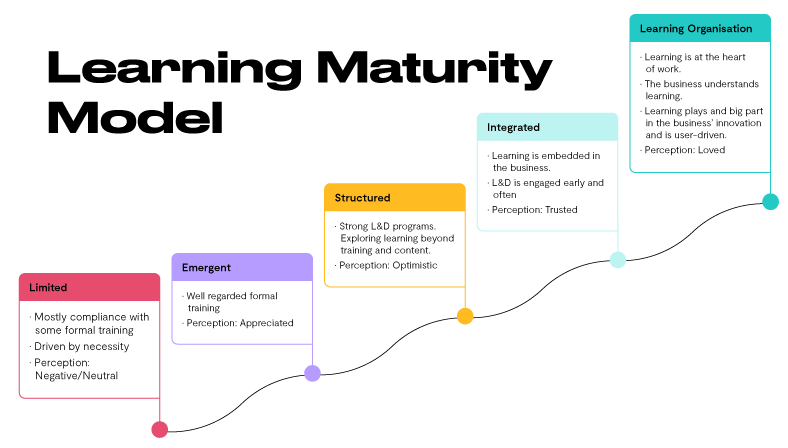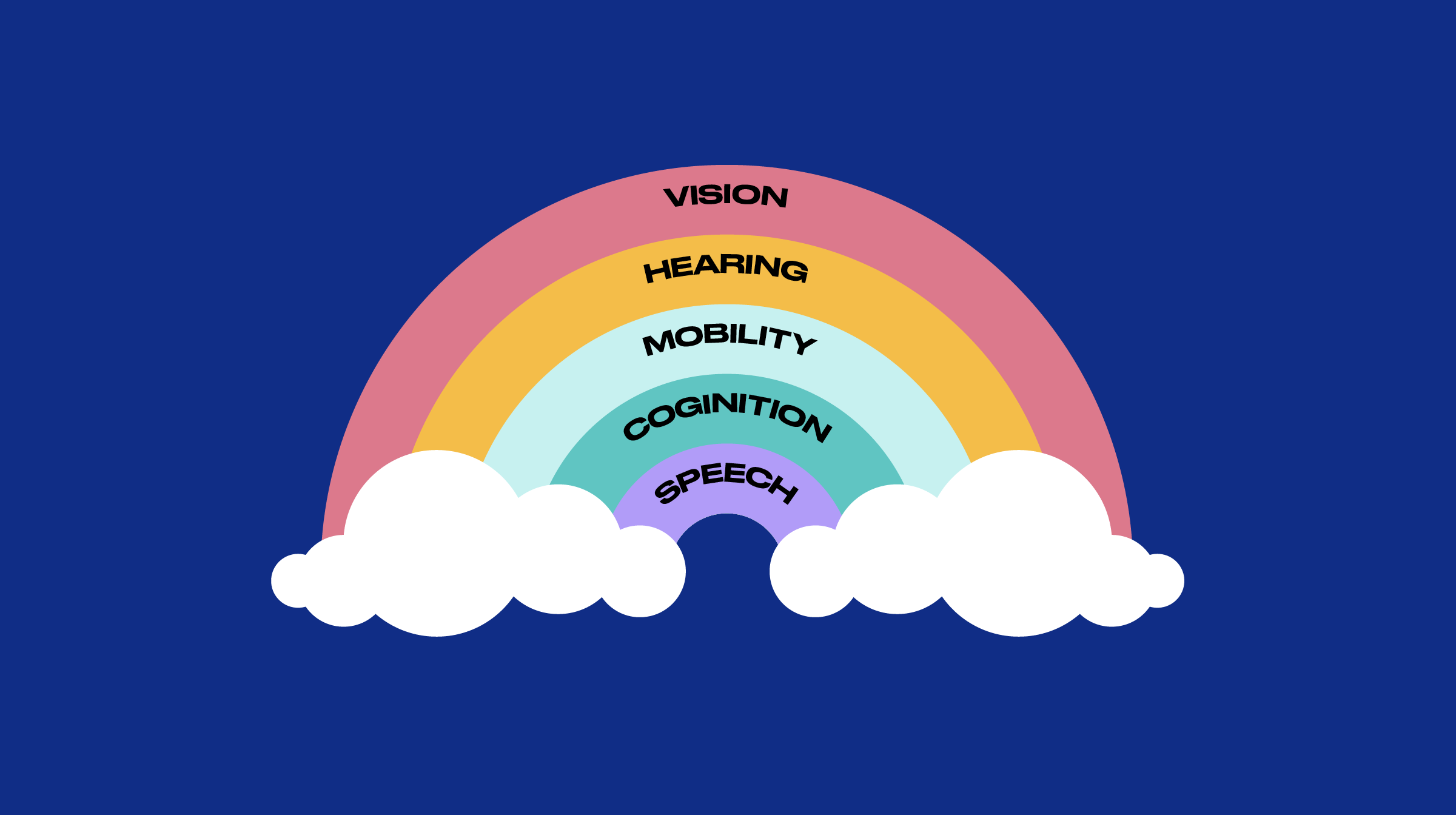Why is organisational learning maturity important?
To begin thinking about learning maturity, we might start with how these two concepts are different.
Learning is the acquisition of knowledge or skills through study, experience or being taught. Maturity, on the other hand, can be defined as, ‘having reached the most advanced stage in a process’.
When we connect the dots, we get learning maturity – effectively how our process for learning develops and grows. It is learning maturity that facilitates better learning.
At an individual level, someone with higher learning maturity will likely have better developed skills, with better methods and strategies to learn that are not only effective, but potentially even help them to learn faster.
Translate this to an organisation, and the benefits are real and tangible.
Rather than something that’s delivered ‘top down’ to teams (insert audible groans), organisations that progress their learning maturity can create a culture where learning becomes their ‘is’, a way of being and state of mind that bleeds into everything, from strategy to performance planning, to task implementation.
And more importantly, it embeds itself into every level of the organisation, making it more sustainable, continuous and organic.
For businesses experiencing skills shortages and the high competitiveness of the job market, learning maturity might just be the key to combat these challenges.
For individuals in a mature learning culture, there is challenge, a broadening of skills and capability, a sense of safety and an appreciation for personal value that is hard to pass up.

At Inspire Group, we believe, and have experienced, how better learning can be life changing. That’s why we created our Learning Maturity Model – designed to help organisations to experience this for themselves.
To learn where your organisation’s learning maturity sits, take our short and simple questionnaire.
Answer 35 questions about what your organisation’s learning looks like, and get access to our Learning Maturity report, including tips on how to progress your learning maturity.





